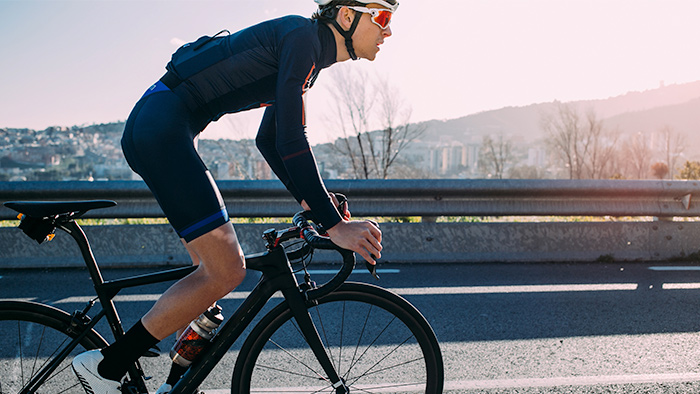In the northern hemisphere, the multisport season has drawn to a close, and most of us are enjoying a bit of a post-season break. As I’m writing this we are heading into winter, nights are drawing in, the clocks have gone back and colder days are ahead.
As driven, competitive athletes, our thoughts this time of year naturally turn to next season. Your race schedule might already be planned (in your head if not on paper) but have you set out the training that will get you to those races in the best possible shape? Your first A-race might be over seven months away yet—so how do you focus your training over so long a period? One way is to consider the principles of specificity and individuality.
Specificity
In its simplest terms specificity tells us is that training should mimic the demands of a race. That makes sense really: if you are training for a 40km cycling time trial, then honing your ability to ride technical singletrack on your mountain bike probably won’t have a direct impact on your TT performance.
Or will it? More on that later.
If we zoom in on this concept of specificity and give it some more thought, what it’s really saying is that the closer you are to your goal race the closer your training should mimic the requirements of that race. Since, at this time of year, you are a long way from your main race(s) your training can have a less specific focus. That opens the door to a range of activities and training intensities.
Individuality
Individuality says that we are all unique; every athlete has their own strengths and weaknesses. Two athletes could complete the same training program but obtain different results due to variations in their physiology and mental strengths. Applied to the off-season, the concept of individuality should help remind you that your training or focus doesn’t need to mirror your training partners.
Combining Specificity with Individuality
If we combine these two training principles we can apply them to the question of what we should be doing at this time of year:
- You are a long way from your A-race so your training can, and in fact ought to, be less race-specific.
- It makes sense therefore to work on areas of individual weakness that might limit your performance.
Going back to the earlier example of a cyclist training for a 40km TT and the question of whether riding technical singletrack on a mountain bike will help. The answer is… it depends.
If the cyclist in question has poor bike handling skills, then doing a little technical mountain biking over the winter will absolutely pay dividends. Improved bike handling will have a positive impact across all cycling disciplines.
On the other hand, if our cyclist has ridden mountain bikes for years and has recently switched focus to time trialling on the road, then some other form of training will likely yield a greater return—that’s the power of individuality!
General technique & strength work
Regardless of individual strengths and/or weaknesses there are some aspects of training that everybody needs to work on, namely: technique and strength.
At this time of year, you can safely focus more of your attention on these important areas. The concept of individuality still applies: if you are lacking in a particular area of technique then that’s where you should focus. For example if you struggle in the water, your pool sessions should have a strong technique focus.
General endurance
It’s also important to maintain our basic endurance abilities. If you have 20+ hours a week and good weather to train, then the traditional way to build a base (riding or running lots of easy miles) will be within reach. For those of us with limited time or bad weather, that long, slow, distance can be complemented by spending some time at the opposite end of the intensity scale.
Anaerobic interval sessions can have three distinct benefits:
- They can enhance your overall aerobic capacity.
- Psychologically they get you used to working hard.
- They tend to be short sessions that are simple to perform indoors while the weather is less than ideal.
Summary: Areas to work on
Technique
We all have things to work on in the water and on land and winter is the perfect time to concentrate on it;
Strength Training
strength – again something we should all focus on but it becomes more important the older you get. Around the age of 50 strength training takes on a new level of importance;
Your Weaknesses
Work on aspects of your training that are not specific to race day but have a wider impact on your performance or are simply enjoyable aerobic activities (eg. get off-road, get your swim stroke filmed/analyzed);
Endurance
Don’t forget about basic endurance but also you don’t need to spend too long doing it; don’t neglect the anaerobic end of the intensity spectrum.
Without knowing your personal circumstances and training history I can’t prescribe specific training sessions. Instead, what I have tried to do here is provide a framework that you could apply to your own circumstances to determine how best to spend your limited training time over the next eight to 10 weeks to give you a solid foundation on which next season can be built.










